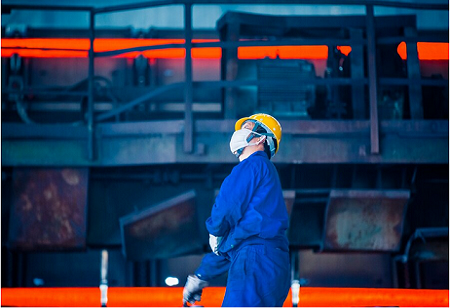
AI powered video analytics solutions start-up Ailytics has recently secured a Pre-A funding of 2.7 Mn dollars from Tin Men Capital. The software solution aims to uphold industrial safety in manufacturing setups and at the same time increase productivity. Many other technology innovations and proactive measures are being taken globally to ensure safety of the workforce in manufacturing units. Using technologies like IoT, companies are able to monitor the performance of high risk machinery without any human intervention. Deaths and injuries of the workforce at various manufacturing facilities have been reported in the last few years because of which governments have taken definitive steps in order to avoid any further accidents. At the same time, technology integrations have also helped in boosting productivity of plants.
“Resistance to change, cost concerns, and a lack of awareness pose hurdles, requiring comprehensive solutions. Investments in user-friendly safety technologies, accompanied by thorough employee training, can overcome technology integration challenges. To address cost concerns, emphasising long-term benefits like reduced compensation claims and enhanced productivity is crucial”, mentioned Avinash Shinde, General Manager – SHE (Safety, Health and Environment) and Instrumentation, Galaxy Surfactants to the media.
From technology integration to employee training programs, the manufacturing industry is constantly trying to excel by establishing a link between productivity and industrial safety and create a sustainable infrastructure. A few aspects need special mention in this regard.
IoT sensors and wearable devices have the capability to monitor environmental conditions that include temperature, humidity, gas leaks and worker health (heart rate, fatigue levels). They are able to provide real-time data in order to prevent hazardous conditions and ensure that all workers are fit for their tasks. IIoT devices monitor equipment health and predict failures before they occur, reducing unexpected downtimes and preventing accidents caused by equipment malfunctions.
In this regard, many structural steel manufacturers in the country have incorporated IOT sensors in order to monitor the productivity of machinery and at the same time reduce human intervention in high risk processes. AI technologies are being integrated into modern manufacturing machineries but majority of the machinery that still exist are traditional ones. It is for these machineries that IoT sensors need to be installed in manufacturing units.
AI and ML analyze data from various sources to predict potential safety hazards and operational inefficiencies, allowing preemptive actions to be taken. AI-powered cameras and vision systems monitor safety compliance (e.g., proper use of PPE) and detect unsafe behaviors or conditions in real-time. AI technologies have also helped boost the manufacturing process through robotic process automation that has played a transformative role in the manufacturing industry. A step by step manufacturing process through RPA is being carries out at various locations across the world which has not only helped in increasing productivity but also ensure safety and security at the workspace.
To give an example, a company that is well known for providing robotic manufacturing automation solutions is Fanuc. The company provides the most advanced RPA solutions for manufacturing units in over 100 countries.
VR is able to provide immersive training environments where workers can learn to handle dangerous situations without real-world risks. AR is able to assist workers in on-the-job training by overlaying instructions and safety information on the worker's field of view. AR systems also have the capability to guide maintenance personnel through complex repair procedures, reducing the likelihood of mistakes and ensuring machinery is fixed quickly and correctly. On the other hand, AR and VR are able to do real-time monitoring of manufacturing processes and provide accurate data visualization regarding productivity. The concerned departments can detect loopholes in the process through data reading and take timely steps in order to increase productivity.
In this regard, the example of one solution provider that is an expert in AR and VR technologies for manufacturing industries is Dassault Systems. The company currently provides a 3D manufacturing experience to clients through innovative technologies that work as game changers in the manufacturing sector.
Drones can perform inspections of hard-to-reach or hazardous areas, such as rooftops, high-voltage lines, or confined spaces, reducing the need for workers to be exposed to dangerous conditions and allowing for quicker, more frequent inspections. On a wider scale, drones are also being used in agricultural production that is being transformative for agro-based countries like India. Futuristic drone technologies are being developed by solution providers that are able to monitor crop productivity and in the process eliminating various health hazards that a physical inspection might cause to the farmers.
A company that is known for providing UAV solutions to manufacturing industries is AeroVironment. It specializes in small unmanned aircraft systems (sUAS) for industrial applications that include monitoring, inspection and other related processes.
Many other technology innovations and regulatory measures have been taken to increase productivity in manufacturing industries and at the same time safeguard the safety and security of the workforce. The industry is still in a growth phase and we will be able to witness multidimensional developments in the coming years.
We use cookies to ensure you get the best experience on our website. Read more...